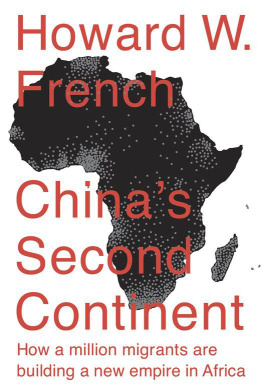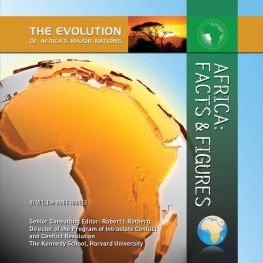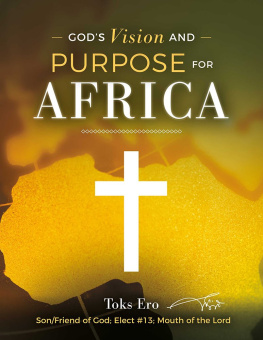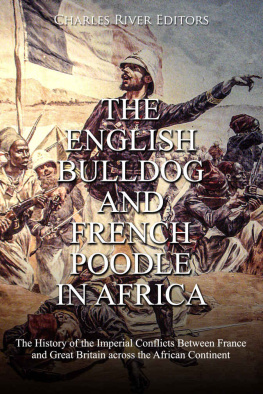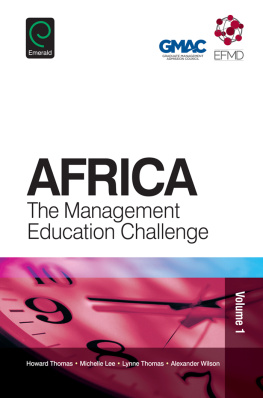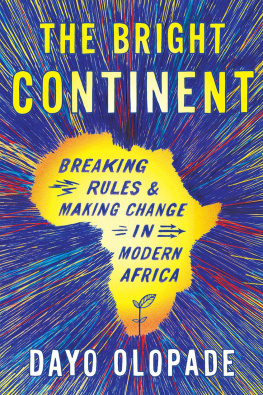Howard W. French - A Continent for the Taking: The Tragedy and Hope of Africa
Here you can read online Howard W. French - A Continent for the Taking: The Tragedy and Hope of Africa full text of the book (entire story) in english for free. Download pdf and epub, get meaning, cover and reviews about this ebook. publisher: Vintage Books, genre: Art. Description of the work, (preface) as well as reviews are available. Best literature library LitArk.com created for fans of good reading and offers a wide selection of genres:
Romance novel
Science fiction
Adventure
Detective
Science
History
Home and family
Prose
Art
Politics
Computer
Non-fiction
Religion
Business
Children
Humor
Choose a favorite category and find really read worthwhile books. Enjoy immersion in the world of imagination, feel the emotions of the characters or learn something new for yourself, make an fascinating discovery.

- Book:A Continent for the Taking: The Tragedy and Hope of Africa
- Author:
- Publisher:Vintage Books
- Genre:
- Rating:3 / 5
- Favourites:Add to favourites
- Your mark:
- 60
- 1
- 2
- 3
- 4
- 5
A Continent for the Taking: The Tragedy and Hope of Africa: summary, description and annotation
We offer to read an annotation, description, summary or preface (depends on what the author of the book "A Continent for the Taking: The Tragedy and Hope of Africa" wrote himself). If you haven't found the necessary information about the book — write in the comments, we will try to find it.
A Continent for the Taking: The Tragedy and Hope of Africa — read online for free the complete book (whole text) full work
Below is the text of the book, divided by pages. System saving the place of the last page read, allows you to conveniently read the book "A Continent for the Taking: The Tragedy and Hope of Africa" online for free, without having to search again every time where you left off. Put a bookmark, and you can go to the page where you finished reading at any time.
Font size:
Interval:
Bookmark:
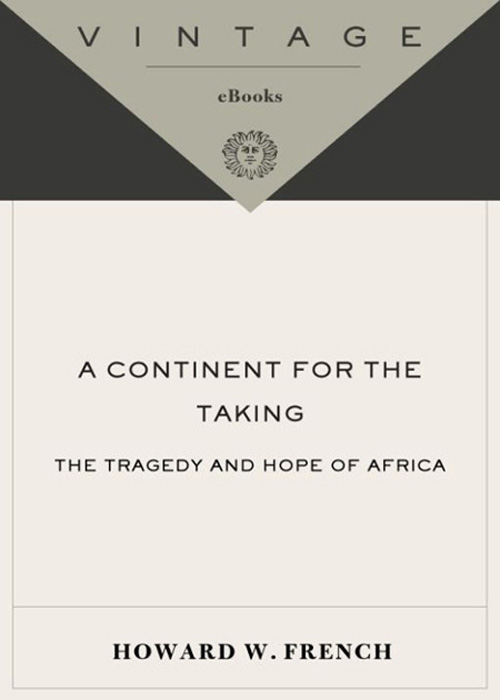
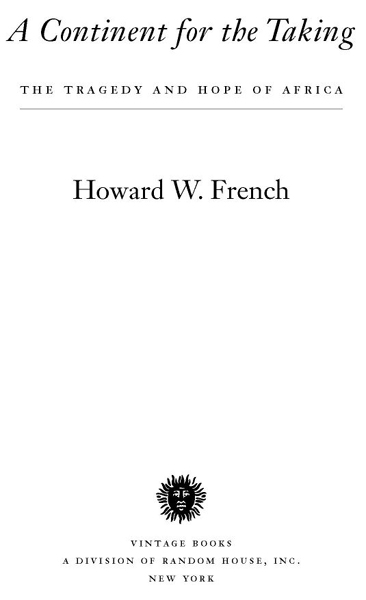
Table of Contents
To my parents, who taught me to ask,
and to Avouka, William and Henry, who understood
There are paths. If you cant see themand why should you see them?youve only got your own eyes to blame. A white man cant see everything: and he has no need to see everything either, because this land is not a white mans land.
CAMARA LAYE, The Radiance of the King
Not even God is wise enough...
A YORUBA PROVERB
A Continent for the Taking
Exhilarating for its frankness.... A triumph of passionate reporting.
The New York Review of Books
A passionate, heartbreaking, and ultimately heartbroken book.... [French] has a deeper and more profound connection to the continent than most journalists.
The Nation
A brilliant and nuanced meditation on the complexities of contemporary Africa. Essential reading for those of us who love Africa and for all those who wish to gain a fuller understanding of a continent that is sprawling, mysterious, and endlessly fascinating. Howard Frenchs voice is both fresh and enlightening.
Henry Louis Gates, Jr.
Persuasive.... The tone is grim, but French also finds an unquenchable African spirit.
The Washington Post Book World
Even when youve been there or know the basic facts, Howard French takes you to Africa in a way youve never been taken before. His superb writing, his keen insight and passion-driven analysis combine to make A Continent for the Taking a great read for those who find the continent as fascinating as he does, as well as for those who need to know why we do.
Charlayne Hunter-Gault, author of In My Place
French gives us the context necessary to understand Africas current problems.... Broad-ranging.... Passionate.
The American Prospect
Frenchs great advantage in telling his tale is his depth of perspective.... Rare is the book on Africa that gets passed around among policymakers in Washingtonwe can only hope this becomes one of them.
St. Petersburg Times
Many Western narratives tend to exonerate the West for Africas seemingly endless woes, placing blame squarely on the continent. Some African accounts tend to blame the West entirely. Howard French strikes the right balance, showing that Africas ills are rooted in internal and external factors which are clearly linked.
 wa Thiongo, author of Weep Not, Child
wa Thiongo, author of Weep Not, Child
A harrowing picture of a continental catastrophe.
The Hartford Courant
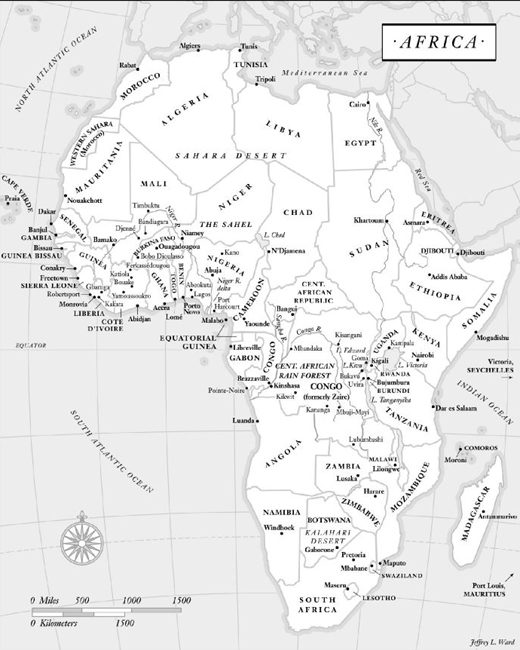
Introduction
Africa eludes us; it is so clearly outlined on the map, and yet so difficult to define. It is both the great, primordial rain forests at the heart of the continent and the immense deserts of the north and south.
From afar, Westerners have long fancied it to be divided into black and white, in the image of their own societies, and yet observant visitors are more likely to be struck by Africas diversity, and by the absence of any sharp dividing lines.
The continent is simply too large and too complex to be grasped easily, and only rarely, in fact, have we ever tried. Instead, we categorize and oversimplify, willy-nilly, ignoring that for the continents inhabitants the very notion of Africanness is an utterly recent abstraction, born of Western subjugation, of racism and exploitation.
Throughout my life, I have roamed and explored the cardinal points of the Africa we see on the map, and a great many places in between. But my Africa, the Africa I first discovered in 1976 as a college student on summer vacation visiting my family in Ivory Coast, will forever be the musty, tumultuous world of the continents west and central regions. As I climbed down the stairway from a jet onto Liberias steamy, pungent soil for a brief layover on the long flight from New York to Abidjan, where my family then lived, it would be a trite understatement to say that I could not have imagined how my personal discovery of this Africa would change my life.
I would come to master languages and patois from the region. I would marry one of its daughters and the first of my two sons would be born there. The thrill of travel and discovery in this part of Africaa civil war in Chad, a coup in Guinea, a stolen election in Liberia would turn me away from an early, passing interest in becoming a lawyer and propel me instead into a career in journalism.
My growing intimacy with the continent, where I discovered that questions of identity were usually far more complex than the stark black-white divide that I had grown up facing as an African-American in Washington, D.C., in the 1960s, would subtly but permanently change my notions of race.
Most important, as a privileged witness to a quarter centurysized slice of history, my understanding of Africa would gradually transform the way I saw the world. It awakened me as nothing else before to the selfishness and shortsightedness of the rich and the dignity of the poor in their suffering, and to the uses and abuses of power.
As important as this transformation has been to me, this book aims to be more than a memoir of Africa and of the impact it has had on my own life. In a much broader sense, it is an extended meditation on the consequences of another encounter, this one centuries old and far more fateful, between Africa and the West.
The personal reportage contained in these pages ranges from my earliest travels on the continent to the end of the century. Cumulatively, I spent nearly a decade living in Ivory Coast, spread out over two decadesthe early 1980s and the late 1990sand from this country, once a prosperous oasis, and now, sadly, a wreck like so much of the rest of the immediate subregion, I roamed far and wide.
The action here, as it were, takes place in my home regions of West and Central Africaplaces like Nigeria, Africas most populous country; Liberia, the closest thing America has ever had to an African colony; Mali, home to some of the continents oldest and most distinctive cultures; and Congo, formerly known as Zaire, whose geographical position astride the equator, in the very center of the continent, and turbulent history give it a strong claim to being Africas heart, literary clichs aside.
Although this book is full of personal experiences, some of them harrowing, its object is not a mere rehashing of old war stories. In some respects, the dates or details, as narrowly defined, are less important than the broad patterns of treachery and betrayal of Africa by a wealthy and powerful West, often aided and abetted by the continents own woeful leaderspatterns that are being repeated even now.
Africa is the stage of mankinds greatest tragedies, and yet we remain largely inured to them, all but blind to the deprivation and suffering of one ninth of humanity. We awaken to the place mostly in fits of coarse self-interest and outright greed. Once upon a time, these brief awakenings involved a need for rubber or cotton, gold or diamonds, not to mention the millions of slaves, branded and ferried like cattle across the Atlantic, whose contributions to the wealth of Europe and its coveted New World are scarcely acknowledged.
Next pageFont size:
Interval:
Bookmark:
Similar books «A Continent for the Taking: The Tragedy and Hope of Africa»
Look at similar books to A Continent for the Taking: The Tragedy and Hope of Africa. We have selected literature similar in name and meaning in the hope of providing readers with more options to find new, interesting, not yet read works.
Discussion, reviews of the book A Continent for the Taking: The Tragedy and Hope of Africa and just readers' own opinions. Leave your comments, write what you think about the work, its meaning or the main characters. Specify what exactly you liked and what you didn't like, and why you think so.

